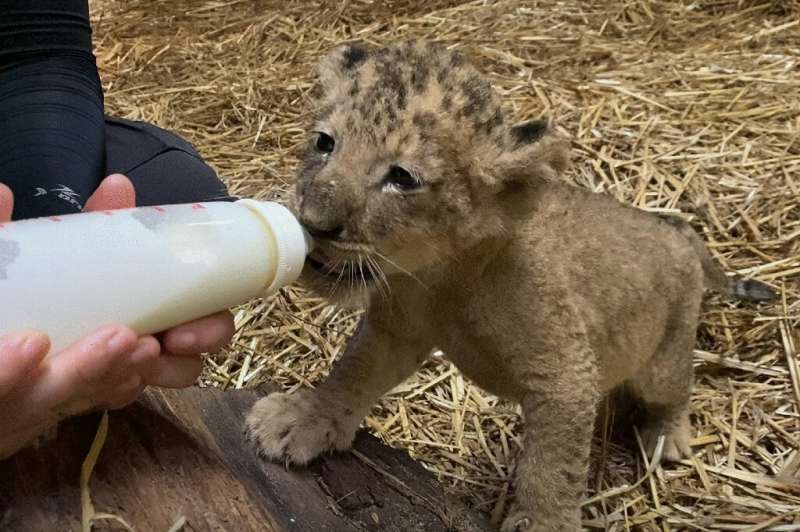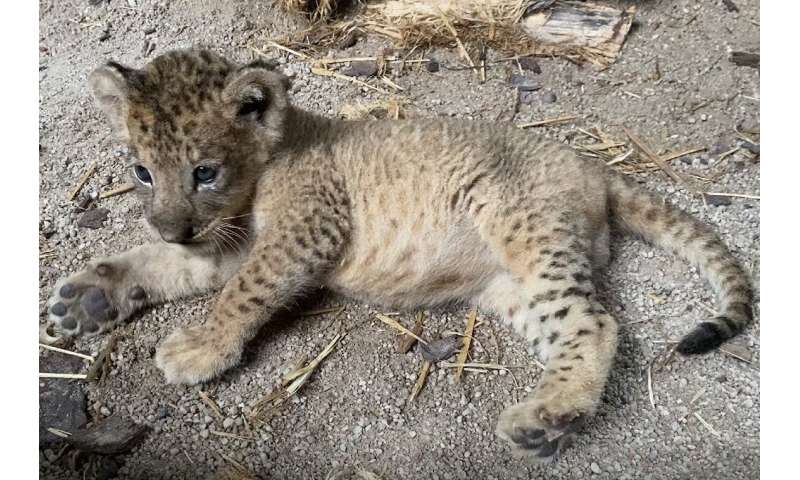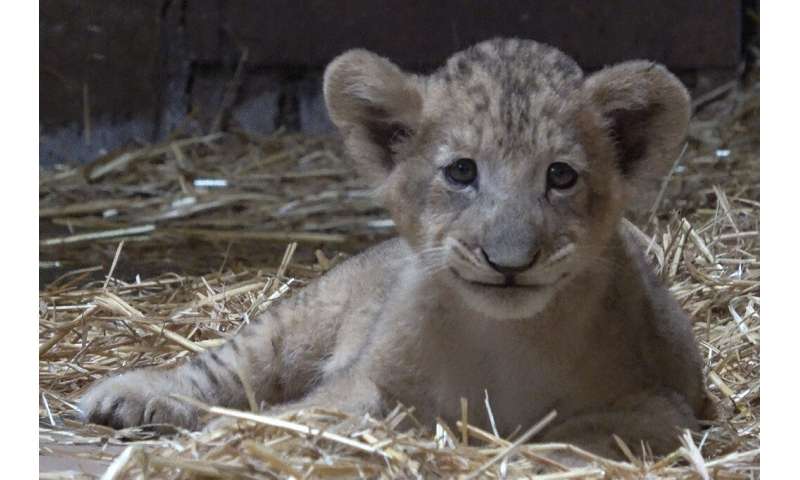#Lion cub Simba born in Singapore via artificial insemination

“#Lion cub Simba born in Singapore via artificial insemination”

The Singapore Zoo has welcomed a lion cub named Simba to its animal kingdom following artificial insemination that officials said Tuesday was a first for the city-state.
It is rare for lions to be conceived through artificial insemination, with the procedure first carried out successfully in 2018—resulting in two cubs in South Africa.
Lion populations in the wild have plummeted more than 40 percent over the past two decades, with about 23,000 to 39,000 mature animals left, according to the International Union for Conservation of Nature.
It lists lions as vulnerable.
Singapore’s new cub, named after the main character in Disney’s “The Lion King”, was conceived with semen from an elderly African lion.
The father Mufasa, who also takes his name from the animated film, was in poor health and did not survive the procedure, the zoo said.
Simba, who was born in October, is being cared for by his mother Kayla and zookeepers, and is “healthy and inquisitive”, officials said.
A video showed Simba being fed from a bottle and playing with a ball.
-

It is rare for lions to be conceived through artificial insemination
-

Singapore’s new cub is named after the main character in Disney’s “The Lion King”
S.African lion cubs conceived artificially in world first
© 2021 AFP
Citation:
Lion cub Simba born in Singapore via artificial insemination (2021, January 26)
retrieved 26 January 2021
from https://phys.org/news/2021-01-lion-cub-simba-born-singapore.html
This document is subject to copyright. Apart from any fair dealing for the purpose of private study or research, no
part may be reproduced without the written permission. The content is provided for information purposes only.
If you liked the article, do not forget to share it with your friends. Follow us on Google News too, click on the star and choose us from your favorites.
For forums sites go to Forum.BuradaBiliyorum.Com
If you want to read more Like this articles, you can visit our Science category.



